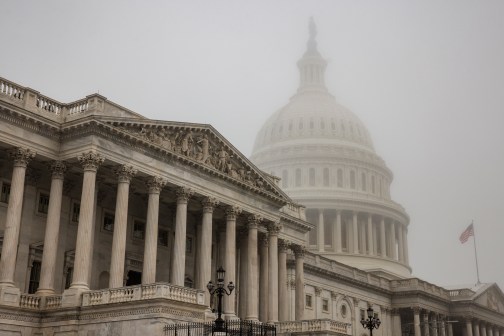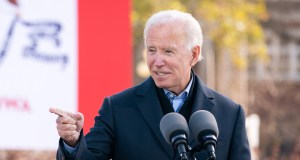President Obama last week proposed raising wages for civilian federal employees by at least one percent in 2015, a move that could prevent a higher increase from taking effect automatically under federal law.
Under Title 5 of the United States Code, the president is authorized to establish an alternative pay plan to increase pay for civilian federal employees in the general schedule and other pay plans. President Obama also sent a letter establishing a one percent increase for uniformed services. Although Congress has the authority to block Obama’s proposal, it must act to do so before Jan. 1.
“I have determined that it is appropriate to exercise my statutory alternative plan authority […] to set alternative January 2015 across-the-board and locality pay adjustments,” the president said in a letter to House Speaker John Boehner, R-Ohio, and Vice President Joe Biden. “As the country’s economic recovery continues, we must maintain efforts to keep our Nation on a sustainable fiscal course,” Obama wrote. “This is an effort that continues to require tough choices and each of us to do our fair share.”
The pay increase would supplant the Federal Employees Pay Comparability Act (FEPCA), which allows for an automatic annual adjustment in wages under the Labor Department’s Employment Cost Index – a formula different than the Consumer Price Index, despite being prepared by the same department.
The FEPCA-established wage adjustment is automatically applied every year unless either Congress or the president acts to adjust it. If Congress does nothing to block President Obama’s one percent increase for 2015, the increase will take effect for the first applicable pay period after Jan. 1, 2015.
If neither the president nor Congress act before the end of the year, under the ECI formula, wages will increase by 1.3 percent for civilian federal employees.
The increase will be the second federal employee wage boost in two years. In December 2013, Obama signed an executive order to increase federal employee wages by one percent, ending the previous three-year pay freeze.
Although some may argue that any increase is better than no increase at all, Tim Kauffman, a communications specialist at the American Federation for Government Employees, told FedScoop in a phone interview that the increase does not go far enough.
“We think the one percent raise does not go far enough to make up for years of no pay raises,” Kauffman said. “The new one percent really doesn’t make up for the ground that federal employees have lost.”
Colleen M. Kelley, president of the National Treasury Employees Union, said the NTEU would like to see a higher pay increase that would “start to chip away at the already-significant pay gap in favor of the private sector rather than an increase that allows the gap to widen. Fair compensation for a workforce that already has contributed $138 billion to deficit reduction and economic recovery is a must if federal agencies are to be able to compete for the talented employees they will need in coming years.”
Kauffman did, however, praise a proposal put forth by Rep. Gerry Connolly, D-Va., in March that would increase federal civilian wages by 3.3 percent.
“We’re grateful for House and Senate lawmakers for their proposal of a 3.3 percent increase,” Kauffman said. “The good news is that employees will receive at least a one percent pay raise, which is better than the alternative of no pay raise.”
Connolly’s proposal, the Federal Adjustment of Income Rates Act, would start to make up for a three-year wage freeze, he said in a statement.
“After a three-year wage freeze, wage-reducing work furloughs, sequester cuts and a government shutdown, our nation’s dedicated federal employees deserve fair compensation,” Connolly said. “Not only has our federal workforce been demonized and demoralized by the constant attacks from the House majority and the Tea Party, over the last four years federal wages have lagged far behind the private sector and have even failed to keep up with the rate of inflation.”
Both AFGE and the NTEU have endorsed Connolly’s proposal, which was cosponsored by fellow Democratic Reps. Jim Moran of Virginia, Elijah Cummings of Maryland and John Tierney of Massachusetts.
Connolly’s version and a similar Senate version have been referred to committee and have stayed there since being introduced.
The White House did not provide a comment by publication time.




